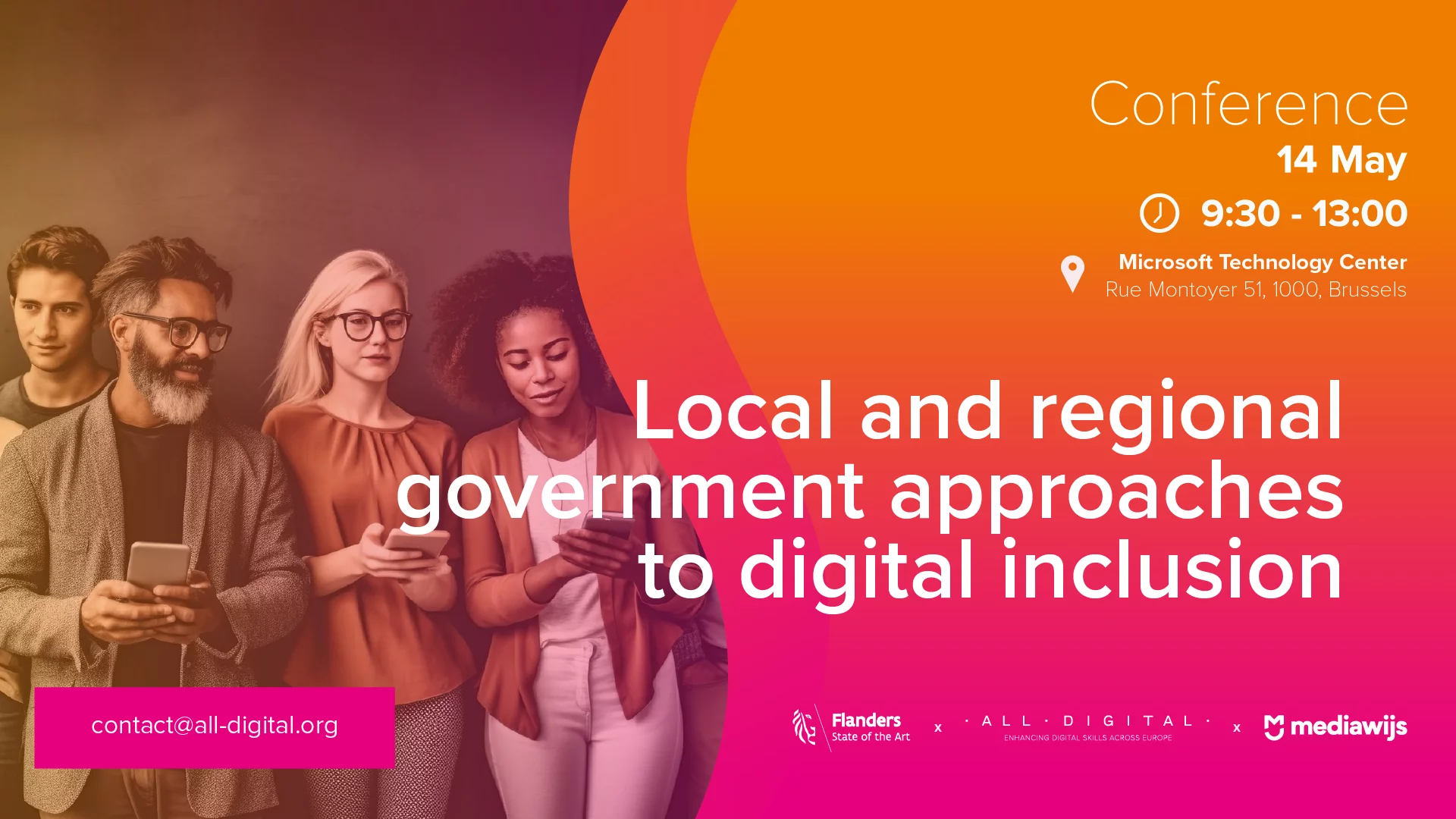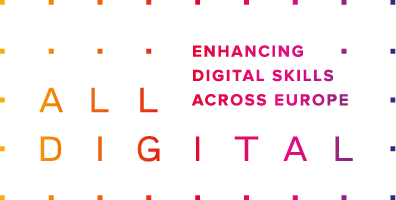
18 May Local and regional approaches to digital inclusion – ALL DIGITAL – Mediawijs Joint Conference
18 May, 2024

In the framework of the ALL DIGITAL Weeks 2024 campaign ALL DIGITAL, in collaboration with Mediawijs organised a conference highlighting local and regional approaches to digital inclusion in Brussels, featuring perspectives from academic research and good practices from around Europe.
Digital inclusion remains one of the biggest challenges of the digital transformation. Considering the increasing digitalisation of essential services, the labour market and social and democratic participation, it is those parts of society which already face exclusion or are otherwise disadvantaged who risk being further disconnected and left behind the most.
In addition, there is a lot of attention on this year’s European elections, and on the EU’s regulatory power continuing to make great strides in the digital sector with the AI Act, the Digital Services Act, and the Digital Market Act. However, digital inclusion measures are ultimately implemented on the local and regional level, and in many parts of Europe local elections are taking place simultaneously with the European elections.
The event, attended by 91 participants from 20 countries, was opened by Altheo Valentini, the President of ALL DIGITAL, followed by Alenka Le Compte representing Mediawijs, and Gerardo Franco, Europe Philanthropies Lead at Microsoft who hosted the event at their Brussels Technology Centre.
ALL DIGITAL President, Altheo Valentini stressed that “We try to use the projects (where ALL DIGITAL is involved) as a cooperation opportunity to bring innovation to the digital education sector and also produce something that can be used at local level by our members as a follow up opportunity with a different target group”
Gerardo Franco : “We face two major challenges when bringing our regional / national strategies to local level, one of them is ensuring coherence and cohesiveness : as you translate from national or regional to local level, things might get lost along the way). The second one is ensuring we have efficiency and scalability of our initiatives”
The keynote lecture centred on a research project about “Localising digital inclusion policy: A comparative analysis of local policy responses to digital exclusion in Belgium, France, and Norway”, presented by Dr. Sarah Anrijs from MICT-UGent and Paola Verhaert from SMIT-VUB, who led the research. The report highlighted that ‘’the main challenges that local government face in working on digital inclusion :
• finding suitable and sufficient staff
• generate internal support
• inter-municipal cooperation
• private partnerships
• lack of finance”
Alenka Le Compte, Digital Inclusion Expert with Mediawijs followed by presenting her organisations work in supporting, local governments on digital inclusion in Flanders. She underlined that : “I strongly believe that the place where we need to support these people (i.e. people who have some lack of digital literacy) is at a local level, at local community center […] where they can ask their digital question and digital support. So it is up to us, (the digital inclusion expert or digital inclusion organization) to make sure that this local organizations getst all the tools and skills in order to support people”
The event continued with a panel of inspirational practices, and good practices from Belgium and Europe”. It consisted of Josie Vranken from District09, the IT partner for the city of Ghent, Flanders, Veronique de Leener from CABAN, the Collective of Digital Accessibility Actors in Brussels, representing Belgian perspectives. They were supplemented by further European examples with Liliana Arroyo, Director General for Digital Society with the Catalan government presenting the Catalan Digital Alliance, and Miomir Rajcevic, presenting the Media Education Centre, a non-for-profit NGO promoting information literacy in Belgrade, Serbia. The session was moderated by Norman Rohner, Policy Officer at All Digital.
The event was rounded out by a networking workshop and small group Q&A and discussion session with each small group facilitated by the individual speakers.









